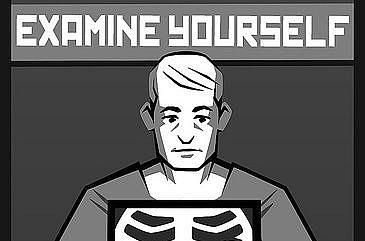Whether retiring or fleeing, doctors are leaving health care

In practical terms, we doctors are a fairly elderly bunch. Nationwide, despite churning out roughly 20,000 newly-minted medical school graduates a year, one in three doctors is over 50, and one in four is over 60.
One reason doctors are older than you think -- the training alone takes so many years. Or, as one uber-specialized colleague of mine said, “It’s hard to explain to your five-year-old son, without making him petrified to start kindergarten, that you’re actually in thirty-fifth grade.”
Knowing that one in four doctors will reach retirement age in five years is cause for enough concern. Then, there’s the well-documented doctor shortage coming down the pipe simply because not enough new doctors are being trained to meet the needs of the U.S. population. But do impending changes within the medical industry stand to drive doctors into early retirement? There’s evidence to indicate that it will.
In my previous post, I explained how Electronic Health Records (EHRs) have not materialized as the great panacea that would streamline and improve health care. Doctors have felt the weight of EHRs and are letting people know they are not happy, maybe even unhappy enough to leave the profession. During the Doccupy protest about the implementation of the EPIC EHR in Contra Costa County California’s safety net health system, a mass exodus was reported: “‘Six doctors have left this year,’ said Dr. Keith White, a 22-year pediatrician. ‘We were not ready for EPIC and EPIC was not ready for us,’ White told supervisors. ‘As a result, the providers are struggling to provide safe and effective care for 100,000 citizens of the county, many of whom are very ill. We often feel that we are failing. We are very tired ... many doctors have left and all are considering leaving.’” [emphasis mine]
Was this just one person’s exaggerated viewpoint?
Apparently not. Deloitte’s 2013 survey of over 20,000 physicians notes 62% say that “it is likely that many physicians will retire earlier than planned in the next one to three years. This perception is fairly uniform among all physicians, irrespective of age, gender, or medical specialty.”
And if they’re not retiring outright, doctors say they believe physicians will “scale back practice hours (55 percent) based on how the future of medicine is changing.” None of this is surprising when Deloitte reports that “[s]ix in 10 physicians (57 percent) say that the practice of medicine is in jeopardy.”
Retirement may be more of a problem in safety net systems, and in certain types of specialties, like primary care, where both the workload and the reimbursement rates are worse than other fields of medicine. But fleeing from a field with very high burnout rates is not unique to physicians.
Studies have shown that the idea of replacing primary care physicians with nurse practitioners has one fatal flaw - nurse practitioners, not surprisingly, burn out the same as physicians do when placed in high-stress positions. In the last year, I have personally seen an accelerated rate of both talented doctors and talented nurse practitioners retire early in safety net systems, rather than face the combined worsening workloads and impact of EHR rollouts on patient care.
Accelerated early retirement also leads to a critical mass effect: staff retire early, safety net positions are hard to fill, and the remaining smaller staff of providers tries to shoulder a now-even-more-expanded workload. A vicious downward spiral occurs with even faster burnout, more early retirements.
The fleeing of health care providers, especially in primary care and safety net systems, means that we are rapidly losing large chunks of irreplaceable workforce, even before the expansion of health care coverage occurs. Accelerating staff loss means that the remaining staff are even more at risk, as is patient safety.
How big are these combined effects? What does this mean for your community? Here are some questions for reporters to ask:
1) How vulnerable is your community? Take a brief survey of your safety net and primary care systems. How many of those providers - doctors and physicians assistants and nurse practitioners - are over 50? Over 60? Is it a larger or smaller proportion than the national average?
2) How fast is your system crumbling? How many people have retired in the last year? In the last two years?
3) How replaceable are the losses? Does your community start with an appropriate rate of primary care providers per capita, or not? How long does it take to fill a primary care position in your local system? Is the rate keeping up with the losses? What is being done if there is an issue?
4) How shaky is patient safety? What happens when a provider retires in your area and there’s no replacement? What are the patients’ stories? How many stories can you find of emergency care being necessary, or poor outcomes occurring, due to provider loss?
5) What about in other fields - like psychiatrists in safety net systems who care for the profoundly mentally ill, and whose EHRs are supposed to be even more onerous to use? What is their rate of staff loss, and how is patient/staff safety holding up?
6) Why are your local primary care and safety net providers leaving? Is there any exit interview process whose information you can access? If not - particularly for large health systems - why is no one doing exit interviews? You may want to find and interview providers who retired early. There could be a compelling story there. People who have left in crisis are often more willing to openly discuss the problems that led them to remove themselves from a health system.
This image by juhansonin via Flickr has been cropped.
